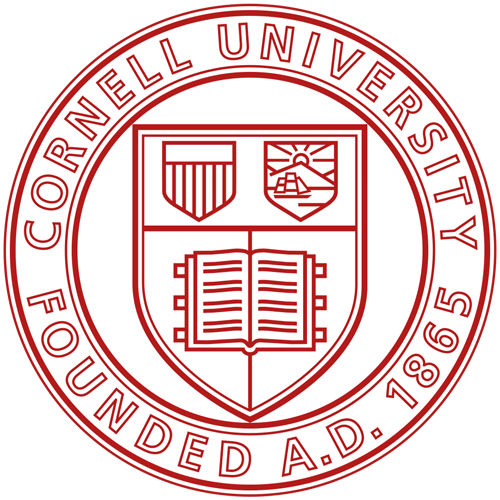
Cornell asks for one or two essays, depending on the school within Cornell you are applying to. Most of the questions, however, have the same two parts. The first asks why you are interested in the subject you are, and the second asks why you want to pursue that subject at Cornell.
In this way, Cornell combines into a single essay the “Why Major” and “Why Us” prompts. (We considered naming this the Why-Why essay, but that seemed a bit much). Cornell is a school heavily focused on academic excellence, and in creating graduates who are accomplished scholars, and ready to face the world at large. They use this essay to assess your passion for a subject, and also your passion for Cornell.
Our example for engineering is a few years old, and comes from before they split the singular prompt into two shorter ones. We believe it still does a good job of exemplifying what Cornell is looking for in a response however.
What kind of a business student are you? The Cornell SC Johnson College of Business offers two distinct business programs, the Charles H. Dyson School of Applied Economics and Management and the School of Hotel Administration. Please describe how your interests and ambitions can be met through one or both of the Schools within the College. (650 words)

My mustachioed prince, lance at bay, charges fiercely at the enemy tower. An army of skeletons rises from the earth, swarming the valiant prince and killing him.
“AGAIN… are you kidding me? How do you already have skellie army in cycle?”
Playing Clash Royale has been a staple leisure time activity, but after helping my friends build their decks, I realized why I enjoyed the game – analyzing the near infinite connections between a hundred different cards was remarkably satisfying.
But my passion for completing multi-stage, interdisciplinary projects continued to grow beyond the bounds of the purely virtual sphere. This summer, I competed in a Mars Space Settlement Design Competition. Instead of the Clash Royale cards, I was confronted with 4 departments: structure, operations, humans, and automations. Each one was intricately linked, making independent work impossible.
Subconsciously, my Clash Royale mind kicked into full force, prioritizing and directing the cards I would play to make our final presentation phenomenal. I digitally drew the lava-tube structure we would live in, animating the time-frame components. With a design in place, I constructed the community map with a staggered skyline, ensuring stunning views of the Martian landscape, while keeping an eye on costs. Although I wasn’t involved in all the work being conducted by our 50 person team, I felt a deep craving to understand it all. As I reflected upon the completion of the competition, I realized that the framing behind a Mars settlement contributed to my perceived enjoyment. For humans, a move to Mars might be necessary to avoid ecological disaster.
Later, I found a closer human connection through another complex project that could be implemented in the present: the renovation of the Ithaca Mall through the Real Estate Summer Exchange Program. I was confronted with tax codes, the residential vs retail dilemma, and the COVID crisis. In order to optimize the value of our renovation, I had to balance both quantitative and qualitative evidence, from financial data to sustainability value propositions. However, it wasn’t just my blueprinting for an outdoor mall that struck a chord with me; this project had human consequences, such as Ithaca’s dire need for affordable housing – and I could propose a solution. Similar to my experience digitally designing the space settlement, I architected a real estate proposal on my computer screen, laying out space for affordable housing that could change someone’s life.
As I reflected upon these competitions, I tried to extract common interests that I could apply to a future career – attempting to combine both human betterment and nested complexities. While I was at the Cornell Real Estate Exchange Program, an admissions officer spoke about the unique school of administration. As I did more research, I discovered the power of the service industry, one of the most intimately tied industries to the daily lives of individuals and families. The complexity of human resources, operations, and finances matched my interests. As an extra cherry on the top, I also discovered the Finance, Accounting & Real Estate Concentration.
However, the idea of pursuing “hospitality” was a turn-off for my parents – immigrants whose first jobs were in hospitality and not by choice. Following my questions, my mom narrated her journey as a waitress, forced to comply with abusive standards to avoid losing the green-card that she had waited almost 10 years for, I felt an immeasurable desire to fix the broken employer-employee dynamic she described. While my parents despised hospitality – avoided it at all costs – because of the disposability of the worker, I vehemently disagreed. To me, a business that failed to value its workers was doomed to fail.
I want to apply to Cornell not only to kindle my love for multistage projects, but also to have a human impact – to prove to my parents that the worker matters.

There are two separate business school options at Cornell. The first is a more traditional business school, while the second focuses on the hospitality industry, especially in hotel management. These are very different fields, and the essay should specifically speak to one of them. The example above is about hospitality.
The first part of the essay is a fairly straightforward Why Major essay, telling the story of how the author came to be interested in such a niche field. However you came to find the field you are interested in, portray it in a light that shows your interests and passions clearly. This is the only essay you get for Cornell besides the personal statement, meaning the more you can show of who you are in your essay, the better.
The author does this well, telling multiple stories that recount their growing interest in understanding complex systems, and the introduction of the Cornell school at the midpoint brings these threads together. This sets up a career in hospitality as the logical endpoint for the author’s interest in systems, and also sets up why Cornell is the best place for this to happen.
The personal connection the author includes at the end makes their desire to study hospitality much clearer, and gives it something of a higher purpose. While it is fine to want to study business to make money or get a good career, a stronger narrative comes from a desire to help others, or better the world. You do not need your own personal connection in this sort of essay, but you should include a higher motivation for your choice of major if possible.
Cornell wants to ensure they are admitting capable, motivated students. While some of this determination is made through grades and test scores, the essays provide a key insight into how students think and approach problems. In writing about how you came to become interested in your field of study, you are able to spotlight some of your activities and achievements. The author above does this well, running briefly through a number of different activities they participated in. This allows you to expand on your activities list while still contributing to the overall message of the essay.
Cornell Engineering celebrates innovative problem solving that helps people, communities…the world. Consider your ideas and aspirations and describe how a Cornell Engineering education would allow you to leverage technological problem-solving to improve the world we live in. (Please limit your response to 650 words.)

My family is the American Dream. My grandparents fled Cuba, with nothing but their clothes ripped to shreds, when the Castro regime took over. My cultural background manifests mankind’s nature to strive for success. Their legacies have codified my values that accumulate into my character. My culture is my unique perspective that I can offer to the world in my dream to make it safer: I always play the ace.
A: Admit failure (but don’t accept it). My family’s story is a tale of triumph, from fleeing Cuba with only toothbrushes to sailing to the United States with tattered clothes. My roots acknowledged defeat only to ascend above it. At the Florida State Science Fair last year, I came to terms with my failure; not because I didn’t win, but because I lost myself in the process. Heavily invested into beating the other competitors with bountiful resources, laboratory research, and newly laminated posters, I forgot why I competed in the fair: my love of rocketry, my pure and untainted love for counting down from “5” to “launch!”. Before improving the world we live in, we must acknowledge the foundation to be built upon.
C: Create hope. From falling to circumstances of poverty to rising above, the uneasy interplay between my family’s past circumstances and responses fosters my belief—life is never straightforward. I spent countless nights drilling the semantics, the ins and outs of my experiment, yet no amount of preparation could have ever diminished my fear of failing on the ISEF showcase floor. Trying to make sense of every other convoluted and superior science fair experiment, I had to engineer hope—derive it from the purpose of the fair. My presence was my purpose: to expand science through the devotion to discovery. In my life goal to establish a secure world, I must first look to hope in creating a safer, kinder world.
E: Expect adversity. After my family admitted failure and created hope, they valued the adversity imposed on them. Adversity adds invaluable virtue to my accomplishments. My love of science would fail to cement a legacy if it were easy to devote one’s life to the unpredictability of knowledge that science encapsulates. I actively walk into every room where I know greater sources of intelligence reside. Just as the ISEF showcase floor challenged every scientific discovery I thought I knew, I must welcome adversity in the real world in my climb to advance cybersecurity.
While I can offer this perspective to the engineering world, Cornell University would offer me unparalleled resources in cementing my legacy: to solidify the technological impact of advanced cybersecurity. In collaborating with Dr. Mu Zhang and engaging in his extensive research in system security and malware analysis and defense, I would gain invaluable knowledge and experience in the field that directly relates to my life’s mission of creating a safer world. The opportunity to contribute to the varying cybersecurity research initiatives of all professors would reinforce my passion for technologically helping the world. Cornell offers the diverse and versatile faculty that substantiates my wish to secure cyberspace and my interest in associating computer science to society. Professor Lillian Lee intrigued me with her co-authored research publication “User-level sentiment analysis incorporating social networks” by connecting my adoration of computer science to societal interactions. These research pivots at Cornell explicitly relate to my life’s calling. From the reference frame of Cornell’s social atmosphere, student organizations like the Cyber Security Club and Computer Reuse Association unite my computer science interest with my wish to serve the community. Simply put, Cornell provides multiple pathways to help enhance and refine my career path. On the other hand, I only have one pathway, one option: Cornell.
My family’s story of living the American Dream spans over generations, but my decision to choose Cornell is quick. Why? They would help me play my ace.

This prompt is asking for two separate, but related, things. The first is about your ideals and aspirations, more plainly, why you want to enter the field of engineering at all. The second is why you want to pursue the field at Cornell in particular. There are many great schools for studying engineering, what makes Cornell’s program uniquely suited to you?
In the example above, the author spends the first section of the essay exploring their interest in engineering and science generally, and the second part narrowly focusing on Cornell’s program. This is good, because it allows them to reuse other material for the first part of the essay; it isn’t explicitly tailored to Cornell, but it doesn’t need to be. Your motivations for pursuing a subject generally remain the same regardless of where you pursue it; it is merely the details which change.
The author uses a unique structure in this essay, with the ACE motif and acronym used cleverly to explore different aspects of their desire to study engineering. This allows them to not only demonstrate their love of the subject, but to explore their values and personal identity. This is clever for Cornell; as the school only asks for this essay, you should use it to show off as much of yourself as you can. Here, the author cleverly describes their values through the lens of engineering.
The essay further focuses on a single concrete event, a science fair the author entered, but did not win. Indeed, we never find out how well the author did in the fair, but that’s part of the point. The purpose of science is discovery, not victory. This shows maturity and understanding on the part of the author, and highlights their drive to discover, and love for science for its own sake, both of which Cornell prizes.
In the second part of the essay, the author talks very concretely about what they want to do at Cornell. They focus on several professors and the work they do, and how this work directly relates to their own goals and desires to learn. This is the best way to approach this section. The more concrete details you give, and the more explicitly you tie your desires to what Cornell offers, the easier it is for admissions officers to picture you walking the halls of the school, interacting with the faculty and programs you mention.
The author further makes it clear that Cornell is the only logical choice for them. While this is likely not true in a strict sense, it makes narrative sense in the essay, and makes the argument more compelling. The final line ties the halves together with a bit of clever wordplay, and neatly wraps up the essay.
You don’t need this form of framing device for your own essay, but you should concretely explain your interest in and passion for engineering. If you can demonstrate your other values while doing so, all the better. You then want to explicitly explain how Cornell will aid your dreams, and how it is the only logical choice for your future plans. The more explicit you are when detailing this, the better.

Ivy Scholars is the leading educational consultant in Sugar Land, Texas, providing admissions coaching, test prep, and more to help students enroll at top tier schools.

Call us now: +1 (281) 215-5148
.
Get expert tips, admissions updates, and resources delivered straight to your inbox.


